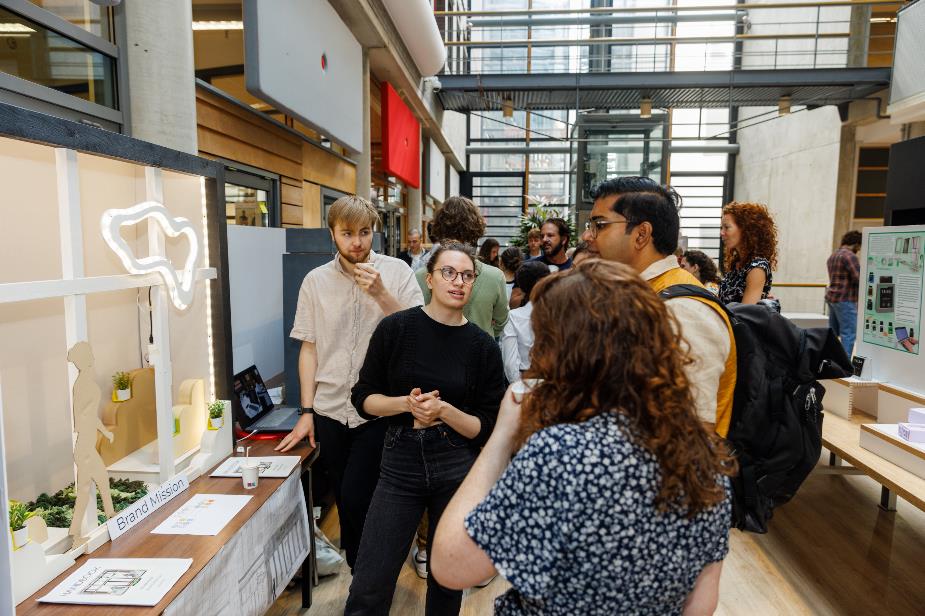Sustainability in our research
As a society, we will have to transition to a situation more in balance with what the Earth's ecosystem can handle. This will require fundamental changes in the political, social, economic and technical fields. In recent years, The Hague University of Applied Sciences has been able to make a solid contribution to research on sustainability.

Applied research on sustainability - and on regenerative education and a circular economy, for example - is of great importance in achieving climate goals agreed locally, regionally, nationally and internationally. At all these levels, The Hague is active with research. What our ambition is at these different levels, we have laid down in our Knowledge Agenda.
Research, education and organisation
We aim for our research to be multidisciplinary as much as possible. Wherever possible, students are involved in research projects. We regularly use the physical locations of The Hague University of Applied Sciences as 'research laboratories'; for example, research into how to make real estate more sustainable. This involves close cooperation with the facilities department. Participation in research projects can also be part of our education; research results are logically reused in education.
Professors in the lead
In our Knowledge Agenda, we have established that for each of The Hague's research themes (just living together, transition to sustainability and digital future), two professors from two different Centres of Expertise will coordinate research in this area and distribute resources. For research on transition to sustainability, these are dr Jos Beelen, profesor Global Learning from the CoE Global and Inclusive Learning and dr Sander Mertens, lprofessor Energy in Transition from the CoE Mission Zero .
Living Labs and Learning Communities
The Hague University of Applied Sciences works with multidisciplinary learning communities, in which researchers and lecturers, students and stakeholders aim to arrive at innovative solutions through research, cooperation and knowledge sharing. Learning communities are a multidisciplinary way of connecting learning, working, research and innovation to find answers to current social issues. In the field of Transition to Sustainability, several learning communities have been formed, such as learning communities in and for energy transition.
As an extension of the learning communities, students, teachers and researchers from different disciplines work together with external parties on these various real-life issues in so-called living labs. This practice-oriented research, which for students can take the form of a minor, often produces innovative solutions. A living lab is a free space in which students work on solutions to bigger problems (also called 'wicked problems') from practice. They work together with innovation partners from various disciplines. This form of collaboration between research, education, business and/or government is highly relevant in our complex society. A good example of a living lab within the walls of The Hague itself is the living lab within the Facility Management programme.